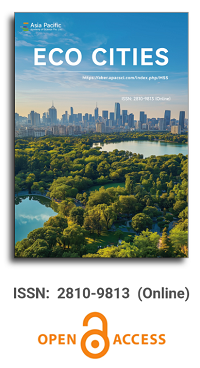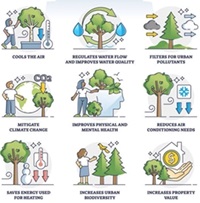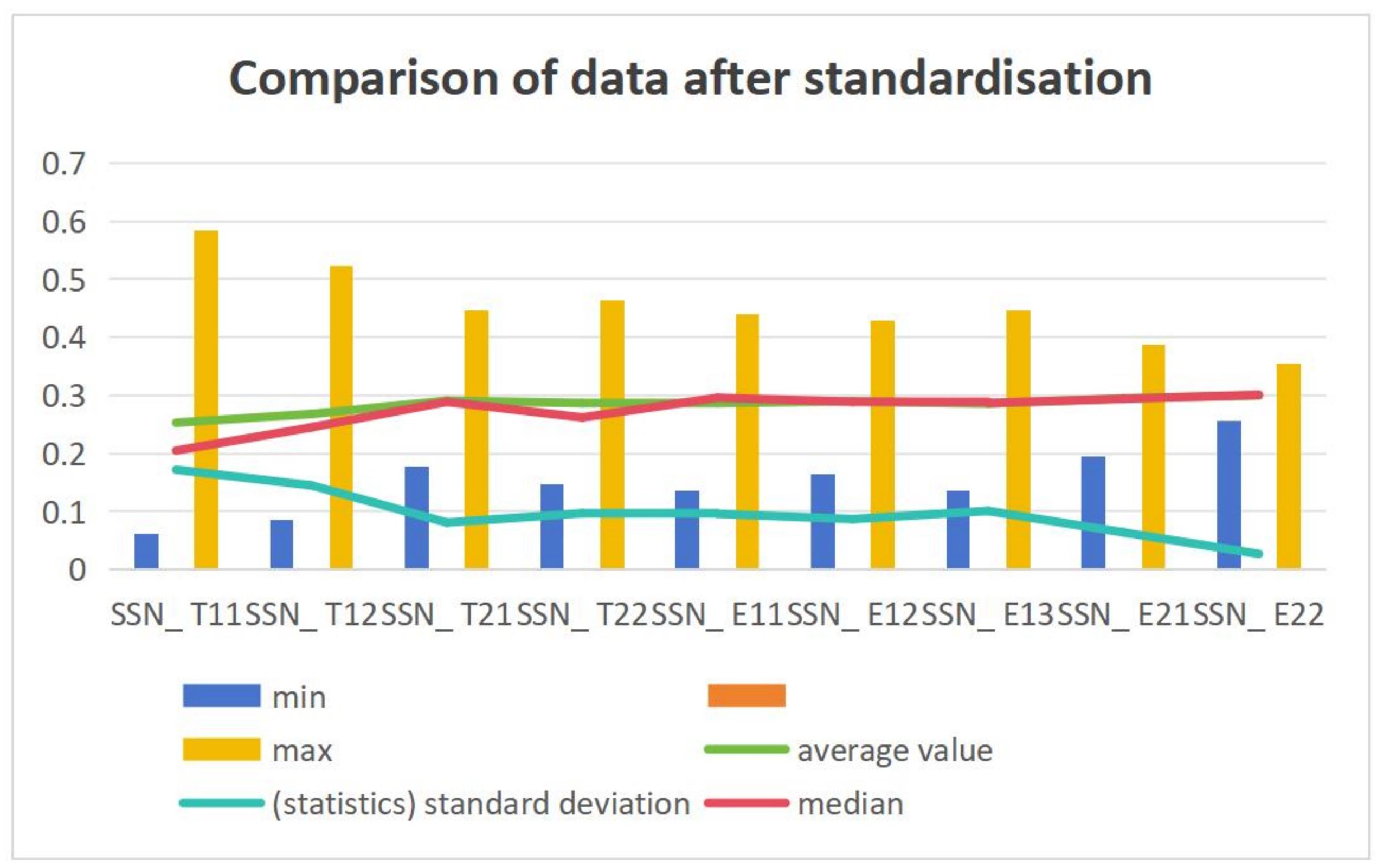


Analytical study on the coupling coordination degree of tourism and urban development—Taking Shaanxi as an example
Vol 5, Issue 2, 2024
Download PDF
Abstract
Tourism has been instrumental in fostering regional economic growth, enhancing the quality of life of residents, and boosting the image of urban areas in Shaanxi, thanks to the accelerated economic and social development of recent years. Nevertheless, the issue of aligning urban development and tourism in terms of space, resources, and the industrial chain remains a significant concern. This paper establishes an evaluation index system for tourism and urban development in the Shaanxi region from 2009 to 2019. It then employs the systematic coupling coordination model to conduct a comprehensive analysis of the coupling coordination degree of tourism and urban development in the region, as well as its various influencing factors. The study demonstrates that the coupling and coordination degree of tourism and urban development in the Shaanxi region exhibited a trend of continuous improvement from 2009 to 2019. The region underwent three stages of development: “uncoordinated development (2009–2011), transformation development (2012–2016), and coordinated development (2017–2019).” The coupling coordination level was elevated from “mild dissonance” to “intermediate coordination” in 2019. In contrast, the tourism economic development of Shaanxi cities remains unequal, as evidenced by the existence of two distinct categories of development: the “lagging tourism economy” and the “coordinated tourism economy.” The findings of this investigation indicate that the general trend of urban development and tourism in Shaanxi is favorable; however, the disparities in the progress of the tourism economy among cities necessitate additional regional coordination and cooperation. The theoretical support for the relevant research and a reference basis for tourism development planning and urban policy making are provided by the evaluation index system and the systematic coupling coordination model proposed in this paper. This will facilitate the sustainable and coordinated development of the tourism industry and cities in Shaanxi.
Keywords
References
- Jiménez-Medina P, Artal-Tur A, Sánchez-Casado N. Tourism Business, Place Identity, Sustainable Development, and Urban Resilience: A Focus on the Sociocultural Dimension. International Regional Science Review. 2020; 44(1): 170-199. doi: 10.1177/0160017620925130
- Elmanzlawi A. Slum Tourism as a Requirement to Ensure Sustainable Urban Development Case-Study: Cairo’s Ashwa’iyat (Informal Areas). (Dept.A). MEJ Mansoura Engineering Journal. 2021; 46(2): 29-46. doi: 10.21608/bfemu.2021.169803
- Ristianti NS, Kurniati R, Widjajanti R. The sustainability concept of Malay Kampong as tourism destination and urbanheritage in Semarang: dualism of modern transformation versus heritage. IOP Conference Series: Earth and Environmental Science. 2021; 778(1): 012011. doi: 10.1088/1755-1315/778/1/012011
- Adrianto L, Kurniawan F, Romadhon A, et al. Assessing social-ecological system carrying capacity for urban small island tourism: The case of Tidung Islands, Jakarta Capital Province, Indonesia. Ocean & Coastal Management. 2021; 212: 105844. doi: 10.1016/j.ocecoaman.2021.105844
- Li Z, Zhang X, Yang K, et al. Urban and rural tourism under COVID-19 in China: research on the recovery measures and tourism development. Tourism Review. 2021; 76(4): 718-736. doi: 10.1108/tr-08-2020-0357
- Orner KD, Symonds EM, Madrigal-Solís H, et al. Holistically Managing Pathogens and Nutrients in Urbanizing Tropical Towns: Can Sanitation Technologies Create Safer Conditions for Beach Recreation? ACS ES&T Water. 2021; 1(5): 1184-1197. doi: 10.1021/acsestwater.0c00264
- Khan SAR, Godil DI, Yu Z, et al. Adoption of renewable energy sources, low‐carbon initiatives, and advanced logistical infrastructure—An step toward integrated global progress. Sustainable Development. 2021; 30(1): 275-288. doi: 10.1002/sd.2243
- Zhang W, Jiang L. Effects of High-Speed Rail on Sustainable Development of Urban Tourism: Evidence from Discrete Choice Model of Chinese Tourists’ Preference for City Destinations. Sustainability. 2021; 13(19): 10647. doi: 10.3390/su131910647
- Ledesma González O, Merinero‐Rodríguez R, Pulido‐Fernández JI. Tourist destination development and social network analysis: What does degree centrality contribute? International Journal of Tourism Research. 2021; 23(4): 652-666. doi: 10.1002/jtr.2432
- Wang X, Zhen F, Tang J, et al. Applications, Experiences, and Challenges of Smart Tourism Development in China. Journal of Urban Technology. 2021; 29(4): 101-126. doi: 10.1080/10630732.2021.1879605
- Spagnoli L, Mundula L. Between Urban and Rural: Is Agricultural Parks a Governance Tool for Developing Tourism in the Periurban Areas? Reflections on Two Italian Cases. Sustainability. 2021; 13(14): 8108. doi: 10.3390/su13148108
- Stetsenko SE, Yastrebova NA, Eterevskaya IN. Study of the Potential of the Territory for the Organization of Ecological Tourism on the Territory of the Volgograd Region and Measures for Its Development. IOP Conference Series: Earth and Environmental Science. 2022; 988(4): 042082. doi: 10.1088/1755-1315/988/4/042082
- Qi X, Li X. Extraction Method of Tourism Sustainable Development Path under the Background of Artificial Intelligence + Smart City Construction. Journal of Interconnection Networks. 2022; 22(Supp02). doi: 10.1142/s0219265921430271
- He B, Liu K, Xue Z, et al. Spatial and Temporal Characteristics of Urban Tourism Travel by Taxi—A Case Study of Shenzhen. ISPRS International Journal of Geo-Information. 2021; 10(7): 445. doi: 10.3390/ijgi10070445
- Bui PL, Chen TL, Wickens E. Tourism industry resilience issues in urban areas during COVID-19. International Journal of Tourism Cities. 2021; 7(3): 861-879. doi: 10.1108/ijtc-12-2020-0289
- Marques Pereira S. Regulation of short-term rentals in Lisbon: strike a balance between tourism dependence and urban life. Urban Research & Practice. 2020; 15(4): 477-504. doi: 10.1080/17535069.2020.1842901
- Yang Y, Wu Y, Hu H. Modeling and Empirical Analysis of Regional Tourism Competitiveness Based on Niche Theory. Farouk A, ed. Discrete Dynamics in Nature and Society. 2021; 2021: 1-11. doi: 10.1155/2021/8384964
- Liu S, Liu R, Tan N. A Spatial Improved-kNN-Based Flood Inundation Risk Framework for Urban Tourism under Two Rainfall Scenarios. Sustainability. 2021; 13(5): 2859. doi: 10.3390/su13052859
Supporting Agencies
Copyright (c) 2024 Lei Wen
License URL: https://creativecommons.org/licenses/by/4.0/

This site is licensed under a Creative Commons Attribution 4.0 International License (CC BY 4.0).

Chinese Academy of Sciences, China
Indexing & Archiving
Asia Pacific Academy of Science Pte. Ltd. (APACSCI) specializes in international journal publishing. APACSCI adopts the open access publishing model and provides an important communication bridge for academic groups whose interest fields include engineering, technology, medicine, computer, mathematics, agriculture and forestry, and environment.



.jpg)

.jpg)



